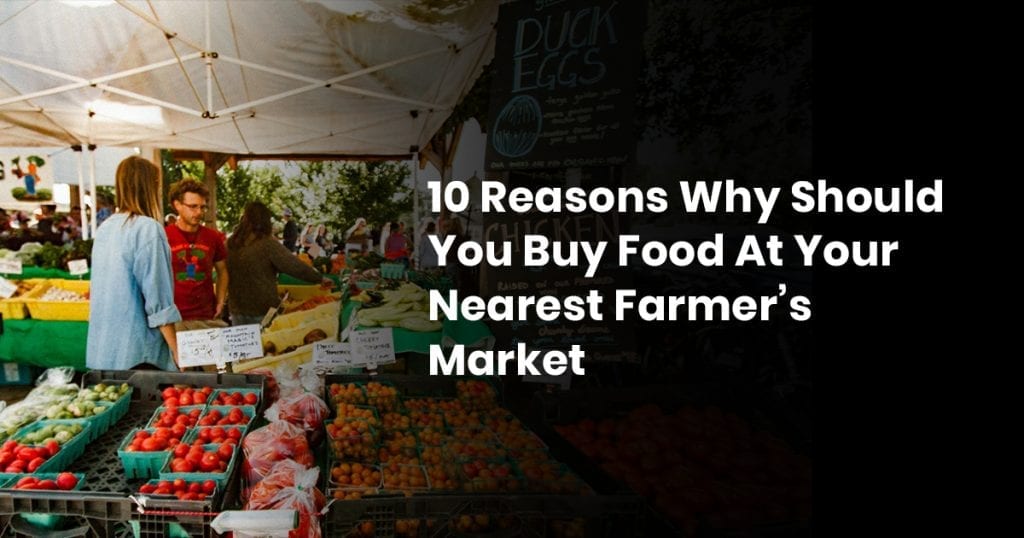Sad-looking produce at the chain supermarket got you down? Sick and tired of eating the same old thing?
A farmer’s market isn’t just a good place to bring a date or kill some time on a Saturday afternoon, it’s a gateway to the best-tasting produce you’ll ever eat, and a volley of new recipe ideas that you never knew existed.
Contents
Little to no Processing Flavor
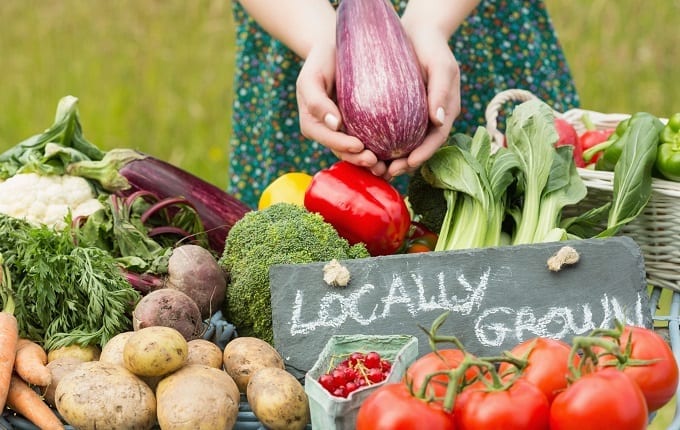
Taste is a big reason why farmers markets are the optimal spot to grab your produce from.
There’s less pesticides and GMOs involved in the production of these crops, and while it might cost a little bit more than the big box stores, you’re also getting better quality out of them.
Your produce shouldn’t be negatively impacting the flavor of your dish (especially if it’s the star ingredient).
Processed produce doesn’t taste as good as something that was still receiving nutrients from the soil in the last twenty-four hours.
Supporting Local Businesses (Not Chains)
When farmers sell to big box stores, they unfairly have to discount their produce, because there’s a lot distribution that goes into place.
The big box store has to pay a driver and pay for the gas that it takes to transport goods to far-off states that could be over a thousand miles away (more on that later).
Supporting local business is good for your local economy, too.
When chain stores move into a town and everyone starts buying from them, local businesses suffer and go out of business, or get bought out by their competitors (the chain in question) and sell their livelihood.
Supporting local business means supporting local education, quality of life, and the community-at-large.
Explore Your Options
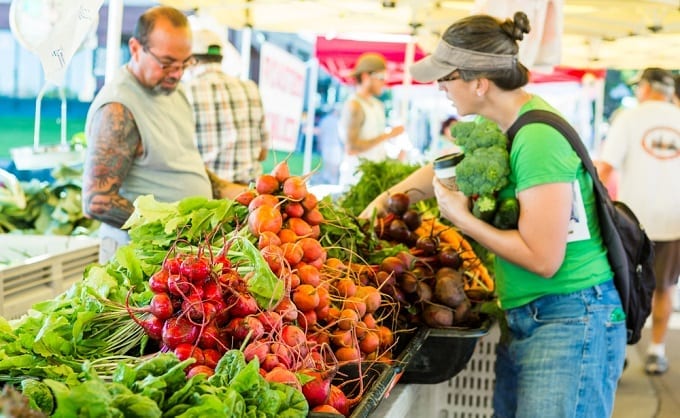
There’s only so much that’s available at the supermarket, but at a farmers market, they’re not holding back.
They bring everything to the table. It gives you the perfect opportunity to try something that you never have, or otherwise wouldn’t because the quality at the supermarket just isn’t good enough.
If you have the very best of something in front of you, you’re more likely to try it and experience something new. You’ve got nothing to lose.
Less Fuel Spent on Transporting Goods
The environment is constantly at-risk, and one of the big things that we need to cut down on is emissions.
On average, food will travel about 1,500 miles from where it began, to where it sits in your fridge at this very moment.
Assuming that the truck they’re on is getting about 25 MPH (which is being generous), that’s 60 gallons of gasoline that’s being burned and sent into the atmosphere… for tomatoes to be closer to you.
Or, you could go to a farmer’s market. Farmers generally don’t travel more than a hundred miles away from their farms to set up shop and sell produce.
To go farther would be an inefficient way to spend their very valuable time.
That’s maybe 10 gallons of gasoline that’s being burned and sent into the atmosphere, 1/6 of what’s being spent otherwise.
It also means that you’re not paying as much, because for the price of goods, big companies and supercenters have to factor in travel costs when marking up the price.
Learn More Recipes and Ideas
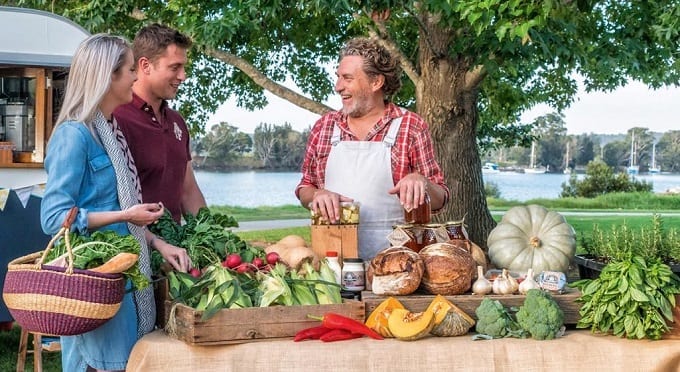
You know what farmers know more than anything else?
Food. That might sound obvious, but they know food intimately in ways that you and I simply do not.
As a result, they have the best knowledge of recipes to use their own produce in, and can even give you new ideas that you never thought of, and that the first page of Google results don’t offer (because who looks past page one?)
Farmers are scientists: they know what goes into food, and they know how to put it to good use at its highest potential.
Strike up a two-minute conversation with a farmer, or another shopper who might be shopping for an out-of-this-world recipe.
Nothing makes you feel more creative than being in front of fresh, local produce on a sunny day, surrounded by others that are trying to accomplish the same goals as you.
Longer Lasting Produce
It takes an average of 1,500 miles of transportation for food to reach your plate from the farm.
That’s distribution, processing, and redistribution to the stores.
Even if you assumed that everything went from the farm directly to your store (which it does not), and as quickly as possible, that’s still about three days before it even reaches the back room.
Then it has to be stocked out front, which isn’t a simple ten-minute task.
To put it simply, if someone said to you, “Hey, you want this zucchini? It’s been sitting in a box for about three days,” then you would be likely to decline.
Farmers market produce is picked from the farm, stored in their own facility for a very short amount of time, and then transported to the stand where you can peruse and purchase.
It means that everything will last for far longer without the risk of rotting.
Better Concentration of Organic Produce
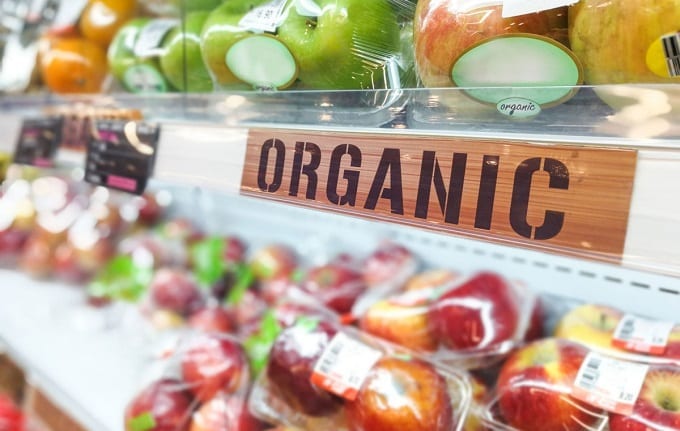
Organic produce is tricky to get from A to B.
We talked about fuel costs and the way that it taxes the environment, and for organic produce, they actually expedite distribution because they’re able to charge more.
The thing is, the lack of preservatives and GMOs mean that they won’t last for as long. At a farmer’s market, you’re getting organic produce laid out in front of you like it’s nothing.
That’s remarkable, and it’s whatever the farmers bring to the table.
However, if there’s a certain fruit or vegetable that you really enjoy, but it’s not a popular choice, then the supermarket or supercenter that you currently go to might not stock it.
They go off of demographics and sales history, and if it’s not profitable to move large volumes of one specific organic produce, then they simply won’t.
More options are available at local farmers markets, and in better quality.
Better Nutrients
At a farmer’s market, you might be buying a vegetable that was in the ground less than twenty-four hours ago.
That means that up until one day ago, that vegetable was receiving constant nutrition from the earth.
When you get food that’s traveled all over, then you get a lot of nutrient loss as the food ages.
Even if you buy vegetables from a farmer’s market and let them sit on the counter for a few days, they’re still going to be better than what you get from the store.
Those have been sitting in the back room while they wait for room to appear out front, they’ve traveled hundreds of miles, and they’re already “on the way out” when you purchase them.
As a result, you can expect your local produce to last longer without withering or showing signs of rot.
No Need to Freeze
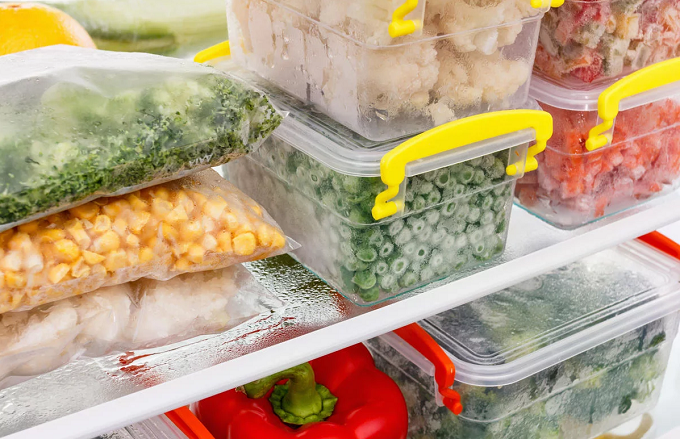
Frozen vegetables take a hit on the nutrient quality, but they also require you to have a freezer.
Not only that, but they’re treated tio retain freshness while waiting for the freezing process to begin.
Frozen vegetable sales are about volume over quality (which is why most brands conveniently mark them all for $0.99), meaning they’re more likely to use GMO products.
The beauty is that you can freeze your farmers market vegetables if you really want to, like if you purchased more than you think you’ll need for your current meal plan.
Freezing foods using reusable freezer bags is a good way to preserve nutrients when they are from local foods, but given how far the food has to travel before it gets frozen in commercial farming, it’s already lost most of its nutritional value.
No Impulse Sales
When you go to the grocery store, they know exactly what to put in those checkout aisles (and how long to keep you there in order to consider buying those items).
It’s called an impulse sale, at which point you participate with an impulse buy.
Not only does it cost you more money, but it’s a wishy-washy sales tactic that’s far too effective, preying on our boredom, irritation with the wait, and reduces us into nothing more than numbers on a piece of paper.
If you don’t believe that it’s that bad, then the next time you’re at the grocery store, take a look at the items in the aisle: magazines with phony or gossip-ridden headlines, candy bars, soda and energy drinks, marked-up kids toys, As Seen on TV items, and packs of trading cards.
There’s a fair chance that you knew what you wanted when you walked into the store, and a bigger chance that it wasn’t an aisle topper item.
A farmer’s market is all about fresh produce, and nothing else.

